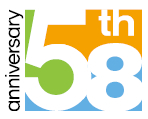Experts call for more aggressive pension management
To mark the 58th anniversary of its establishment on Aug. 15, The Korea Herald is publishing a series of articles on the looming retirement of Korean baby boomers and its socioeconomic impact on the nation. The following is the fourth of the eight-part series ―Ed.
The financial difficulties of baby boomers will pose arguably the biggest challenge for the state’s limited welfare budget for the growing number of retirees, experts said.

Unfortunately for those born between 1955 and 1964, a majority of them rely solely on the state pension plan, and even those who have private plans own fractionally less in equities compared with their peers in the Organization for Economic Cooperation and Development member nations.
Recent research by the Seoul National University Institute on Aging found only half of the 7.12 million baby boomers have been saving for their retirement, with the amount averaging 322,000 won ($298) per month.
Over 80 percent of them are passive investors in the National Pension Service, reflecting the risk-averse nature of the elderly in Korea.
Comparing the group’s pension allocation with that of other countries may offer a clearer picture.
Australians have almost half of their pension investments in equities. Americans have about 47 percent, while Germans have about 5 percent of their pension pot as equities. Koreans have none, according to the OECD.
“Baby boomers in Korea are particularly risk averse. Numerous studies show that the majority plans to pay for post-retirement expenses from personal savings but seven out of 10 rely on the state pension plan,” Han Kyung-hea, a SNU sociology professor, said.
“The fact speaks for itself. Baby boomers are facing financial ruin,” she added.
The latest statistics say that nervous soon-to-be retirees have been rushing to pension products and job markets. An analysis by the Labor Ministry said the pension fund balance at public and private agencies stood at 35.59 trillion won as of June, almost double of the figure from June 2010, 18.98 trillion won.

The balance was 4.6 trillion won in 2008 but grew to 10 trillion won by the end of 2009, and then to 20 trillion won by the third quarter of last year. The ministry attributed the jump to a growing awareness of the need for pension plans as well as the expiry of tax break on pension products last year.
Samsung Life Insurance, the biggest life insurer here, estimates the pension market will grow 6.6-fold to 192 trillion won by 2020. The economy faces the burden of supporting a large number of pensioners in the next decade as the majority of baby boomers retire.
“Considering that Korea’s GDP in 2020 is forecast to be 1,687 trillion won, retirement assets will amount to 40 percent of gross domestic product,” a Samsung Life official said.
“But such numbers still fall far short of the conditions in advanced economies.”
The employment rate is usually the highest for those in their 40s, followed by those in their 30s and 50s. But older baby boomers topped people in their 30s for more than four months in the past two years.
Analysts say staying in work should not be a back up strategy for baby boomers as their jobs are often insecure.
“Those who have retired from their full-time jobs often land irregular posts with unstable working hours. Their rate of irregular employment is also higher than that of other age groups,” Yu Byung-kyu, chief of economic research at the Hyundai Research Institute, said.
The Center for Strategic and International Studies, a U.S. foreign policy think tank, said Korea ranks 19th out of 20 countries for income adequacy. The report, released through Seoul’s Finance Ministry in July, said the analysis used two indexes ― Income Adequacy and Fiscal Sustainability ― to measure how well prepared a country’s elderly group is for their retirement.
Korea finished nearly at the bottom of the list behind China and one place ahead of Mexico.
This index “takes into account the differing fiscal room that countries have to accommodate their growing old-age dependency burdens,” the CSIS said.
The CSIS said Korea would have to rely on public welfare budgets to support 45.9 percent of its senior citizens by 2040. The amount, however, would only cover 79 percent of the average wage earned by those in their 40s in Korea, it said.
SNU professor Han said the pension industry needed to work with policymakers to help baby boomers allocate a bigger part of their income to retirement savings.
“Baby boomers and the generations to follow need policy support to tap on pension products that just began to grow in recent years,” Han said.
The SNU Institute on Aging said all retirees should have one plan each from public pension, corporate pension scheme and personal investment. The team expects baby boomers to fund 29.3 percent of their post-retirement spending from public pensions, 66.1 percent from personal savings.
It judged most people don’t expect to rely on an institutional pension scheme, forecasting only 4.6 percent of the spending to be covered by the category.
They also noticed that Koreans possessing more real estate than financial assets will be a problem. A breakdown of baby boomers’ assets said the group had allocated 82.4 percent of their assets in property. Financial assets only took up 14.8 percent of total assets.
“Those without private plans should start managing their investment aggressively by dividing up short-term and long-term expenditure and allocating them to products with varying risk premiums,” it said.
By Cynthia J. Kim (cynthiak@heraldcorp.com)



![[Herald Interview] 'Amid aging population, Korea to invite more young professionals from overseas'](http://res.heraldm.com/phpwas/restmb_idxmake.php?idx=644&simg=/content/image/2024/04/24/20240424050844_0.jpg&u=20240424200058)













![[KH Explains] Korean shipbuilding stocks rally: Real growth or bubble?](http://res.heraldm.com/phpwas/restmb_idxmake.php?idx=652&simg=/content/image/2024/04/25/20240425050656_0.jpg&u=)

